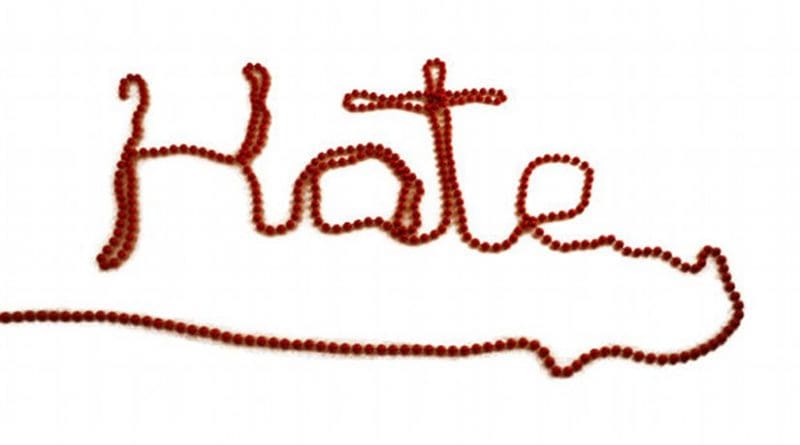Hate Groups Have Many Scapegoats – OpEd
On August 8, 2019 the FBI arrested and charged an alleged Las Vegas neo-Nazi with plotting to bomb a synagogue and gay club in Las Vegas. Conor Climo, 23, a security guard, allegedly was found in possession of bomb-making materials; and was “communicating with individuals who identified with a white supremacist extremist organization,” according to the FBI.
When arrested he admitted to agents that he hated “African-Americans, Jews, and Homosexuals” and was planning on building an improvised explosive device.
White supremacists have committed at least 73 murders since the far-right rally two summers ago in Charlottesville, Virginia according to the Anti-Defamation League that says 39 of the killings were “clearly motivated by hateful, racist ideology.”
“The violence on the streets of Charlottesville kindled two major tracks of white supremacist activity,” the ADL said. “The first is the rampant dissemination of propaganda designed to promote their views and attract attention. The other, more troubling track is a broader series of violent attacks in the two years since Unite the Right.”
Among those attacks were the shootings at a Parkland high school, the Tree of Life synagogue in Pittsburgh, the Poway synagogue and last Saturday’s attack at a Walmart in El Paso, Texas.
According to the report, the recent attacks are part of a four-year resurgence in white supremacist activity and activism driven in large part by the rise of the “alt right.”
The Unite the Right rally in August 2017, which left one counter-protester dead, drew far-right extremists from at least 39 states and presented approximately 50 different extreme-right movements, groups and entities, according to the report. The Center on Extremism has identified 330 of the roughly 600 white extremists from the event.
Widespread doubt about the future in America, Great Britain, Europe and the Muslim World leads to “scapegoating” politics and worldwide extremist political/religious sects.
Anxiety has split Americans in half — 49 percent to 49 percent — on whether “America’s best days are ahead of us or behind us.”
This anxiety had produced four major scapegoats; immigrants, Jews, Gays, and the religion of Islam, as can been seen in a major rise in Anti-Semitism and Islamophobia in the United States Europe and Great Britain.
All this teaches us that everyone should be constantly reminded that religious political extremism is ultimately self-destructive to both its self and its supporters. In the words of the poet W. B. Yeats: “Things fall apart; the centre cannot hold…The best lack all conviction, while the worst are full of passionate intensity.”
The time has come for all the best of religious conviction, to denounce and denigrate the activities and beliefs of those who are filled with the worst of religious convictions, before they desecrate and diminish all believers in the one God of Abraham.
Our religious and political leaders could help improve interfaith relations by constantly repeating the important lesson taught by the German Protestant theologian Pastor Martin Niemöller (1892–1984) about the cowardice of German intellectuals following the Nazis’ rise to power; and their subsequent purging of their chosen targets, one group after another:
First they arrested Socialists, and I did not speak out— because I was not a Socialist.
Then they arrested Trade Unionists, and I did not speak out—because I was not a Trade Unionist.
Then they arrested Jews, and I did not speak out—because I was not a Jew.
Then they came for me—and there was no one left to speak out for me.
And our religious and political leaders could also help improve interfaith relations by constantly repeating the important lesson taught by an eleventh century Spanish Muslim theologian: “Declare your jihad on thirteen enemies you cannot see – Egoism, Arrogance, Conceit, Selfishness, Greed, Lust, Intolerance, Anger, Lying, Cheating, Gossiping and Slandering [scapegoating]. If you can master and destroy them, then will you be ready to fight the enemy you can see.” – Imam Al-Ghazali

